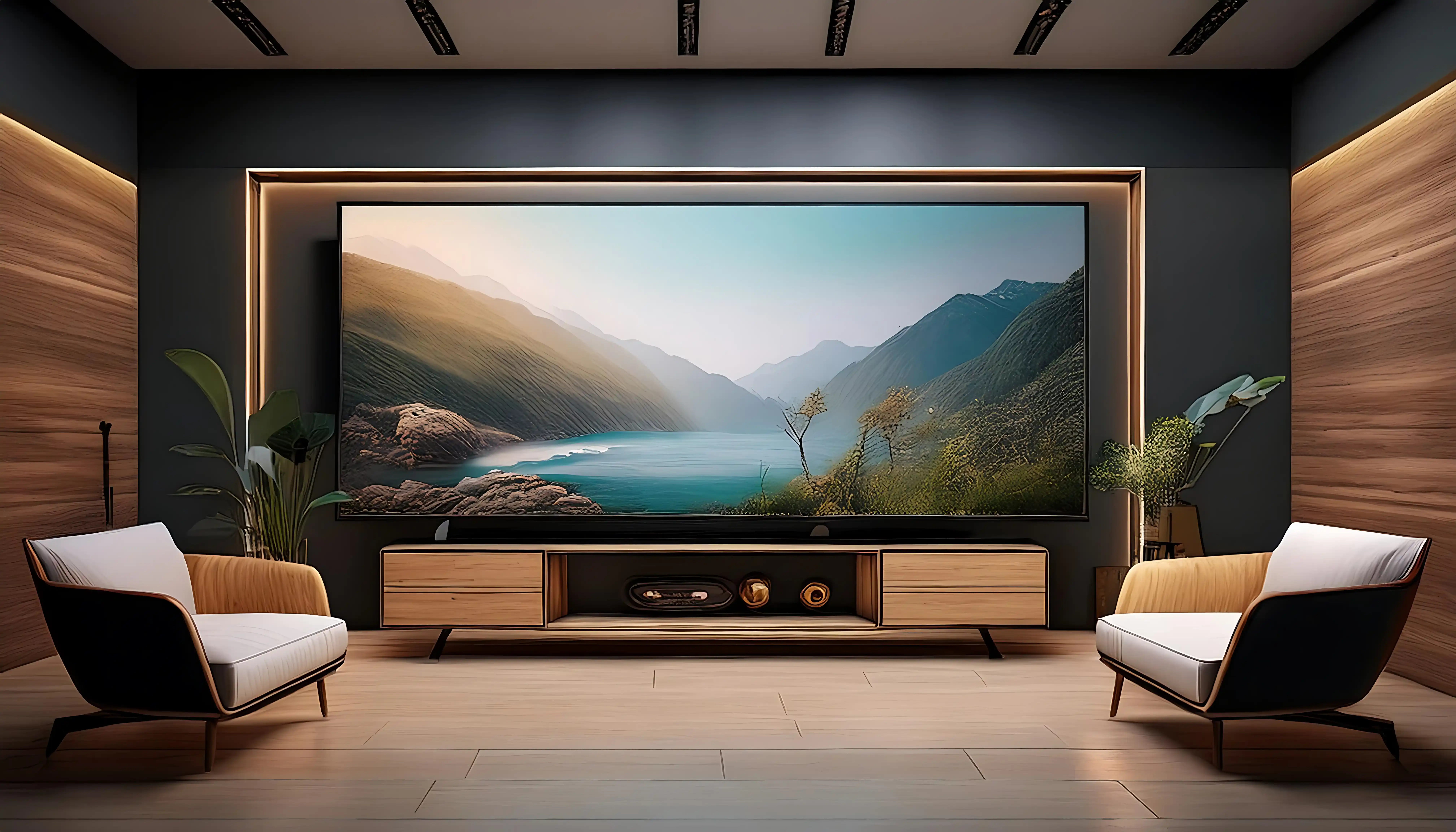Screen Size: Getting the Proportions Right
When it comes to projector screens, size matters. You want a screen that fills the viewing area without overwhelming the room or forcing viewers to crane their necks. The ideal screen size depends on:
Room dimensions: Measure the distance between your seating and the screen. Typically, the screen should occupy 30-40 degrees of your field of view.
Projector capabilities: Ensure your projector can handle the screen size without losing resolution or brightness.
Aspect ratio: Consider the content you’ll watch most often. A 16:9 aspect ratio works best for TV shows and modern movies, while a 4:3 aspect ratio might suit classic films.
Screen Material: Maximizing Picture Quality
Screen material plays a huge role in determining how images will appear. Here are some common screen types:
Matte White: This material provides uniform brightness and is ideal for rooms where you can control ambient lighting.
Gray Screens (High Contrast): These screens enhance contrast and work well in rooms with some ambient light. The darker surface helps improve black levels, adding depth to images.
Acoustic Screens: If you plan on placing speakers behind the screen, go for an acoustically transparent material that lets sound pass through without distortion.
Choose a screen material that complements your projector’s brightness (measured in lumens) and the room’s lighting conditions.
Gain: Understanding Screen Reflectivity
Gain measures the amount of light the screen reflects toward the viewer. A screen with higher gain will reflect more light, making images appear brighter. Consider the following:
Low Gain (0.8 - 1.0): Perfect for darker rooms, these screens reflect less light and provide a more uniform viewing experience across wider seating areas.
High Gain (1.1 - 2.0): These screens are suitable for rooms with ambient light, but they can create “hotspots,” where the image is brighter in the center.
Choosing the right gain helps balance brightness and image quality based on your room's lighting.
Viewing Angle: Ensuring an Optimal Experience for All
The viewing angle is the maximum angle from which you can watch the screen without losing image quality. A wider viewing angle ensures that everyone, regardless of their seating position, gets a good view. For home theatres with multiple seating rows or wide spaces, opt for a screen with a wide viewing angle to avoid color distortions and image darkening at the edges.
Fixed vs. Retractable Screens: Which is Best for You?
Depending on your room design and how you plan to use the space, you’ll need to decide between:
Fixed Screens: Ideal for dedicated home theaters, these screens are permanently mounted, ensuring a sleek, professional look.
Retractable Screens: If you’re working with a multipurpose room, a retractable screen allows flexibility. You can roll it up when it’s not in use, keeping your living space clutter-free.
Ambient Light Conditions: Control Your Environment
Home theater rooms that have controlled lighting work best for projector screens. However, if your room has windows or limited light control, consider an ambient light rejecting (ALR) screen. These screens are designed to reject light from sources other than the projector, improving contrast and clarity in less-than-ideal lighting conditions.
Budget: Balancing Features and Cost
Projector screens come in a wide price range, from budget-friendly options to high-end models. While it’s tempting to splurge on the latest tech, consider your overall setup. A mid-range screen paired with a quality projector and sound system might deliver better results than an expensive screen with lower-quality components.
Installation: Getting the Setup Right
Don’t forget about the installation process when choosing a screen. Think about:
Wall vs. Ceiling Mounting: Depending on your room’s layout, you may prefer to mount the screen on a wall or ceiling.
Electric vs. Manual Retractable Screens: Electric screens offer convenience and precision, while manual screens are more affordable but require manual adjustment.
Ensure your projector and screen are perfectly aligned for optimal performance.
Final Thoughts
Choosing the right projector screen for your home theatre setup is essential for creating a true cinematic experience. By considering factors such as screen size, material, gain, and installation preferences, you can ensure the best viewing experience for yourself and your guests. For expert guidance and top-quality options, Home Connect Cinemas is here to help you select the perfect projector screen that aligns with your specific needs and transforms your home entertainment into an extraordinary experience.
